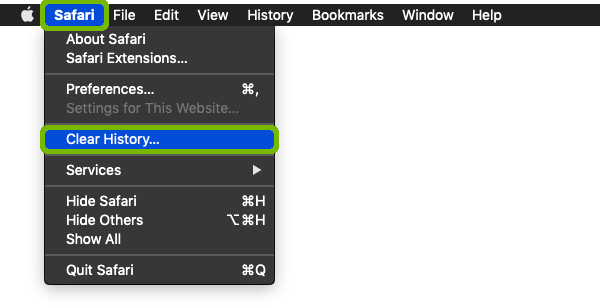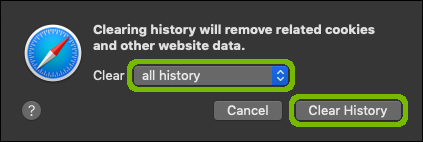Authored by: Support.com Tech Pro Team
It can be frustrating with you can't get your email using your web-based mail system. In some cases, this is someone's only way to check their email. This guide will take you through the basics to getting your mail back working properly.
Each fix is listed in order. Try each one individually and then test to see if you are able to access your email. If successful, you can discontinue use of this guide. If you're still having trouble, try the next fix until you find one that resolves your issue.
Before You Begin:

Many basic problems can be solved simply by restarting your device. This clears caches, and forces the device to re-load the program or web page you may be having issue with, rather than use something that may be partially wrong.
Before you restart or shut down your device, make sure to save all necessary work to prevent data loss.

Windows




Apple macOS


Android





Apple iOS




After rebooting, check if you are still having the same problem again. Many times, this is all that's needed to fix issues you may have!



Many problems with more active websites, such as webmail or database access pages, there can often be a problem with the information your browser caches, or saves to make it load faster, and what the site itself is trying to display. The simple solution is to tell your browser to delete whatever it has in its cache, so it can get a fresh copy that's more likely to work properly.
On top of that, cookies, or little tokens of information, can also get out-of-sync, and cause similar problems when a site is changed a little. Again, telling the browser to clear cookies is the simplest solution to this issue.
After clearing cookies, you will need to sign back into sites you use regularly.
If you have your browser set to remember your passwords, this won't be lost, and your browser will automatically fill in the prompts for you.
Each browser is a little different in where the cache and cookie settings are kept. Select your browser from the list below for tailored instructions to clear the cache and cookies.

Google Chrome





Safari



Mozilla Firefox






Opera




Microsoft Edge







Safari on iOS






Chrome on Android






It's a good idea to test if the site you're trying to access is down for everyone, or just you. There's a website that facilitates doing just that!




It appears your web browser and computer are working fine because you are able to reach Google. There is a problem with the website itself that you are trying to reach.
You can wait and try accessing the site in a little while, or you can contact the person or company that controls the website to find out more about why the site is having problems, and when it will become available again.
The issue you are experiencing may not be due to an Internet or website issue. It may actually be an issue with the web browser you are using. Some websites, especially interactive ones such as webmail services, may work better when accessed with a particular browser. Some websites actually recommend or require a specific browser in order to function properly. Depending on the device you are using and what it currently has installed, you may have a backup or alternative web browser already available.
Microsoft Edge

Microsoft's Edge browser comes pre-installed and setup on your Windows computer.
If you don't see an icon for Edge on your Desktop or Taskbar, you should see one in your Start Menu.
Apple Safari

Apple's Safari browser comes pre-installed and setup on your Mac computer, or iOS phone or tablet.
If you don't see an icon for Safari on your Dock, you can find one in your Applications folder.
Google Chrome

Google's Chrome browser comes pre-installed and setup on your Android phone or tablet, and is available for Windows and Mac computers as well, and is exceptionally popular as both a primary and secondary browser for many people.
Setup Google Chrome
We have guides available if you wish to setup Google Chrome as a second browser on your computer.
Mozilla Firefox

Mozilla Firefox is available for Windows and Mac computers, and is a popular browser used by many people.
Setup Mozilla Firefox
We have guides available if you wish to setup Mozilla Firefox as a second browser on your computer.
Opera

Another browser, often installed because Opera tends to lay out a great many features on the screen at all times.
Setup Opera
We have guides available if you wish to setup Opera as a second browser on your computer.
It appears that the first web browser you tried to access the website with is having problems. Either because the website you tried to visit is incompatible with it, some sort of misconfiguration, or some type of deeper issue that will require service.
This is not a problem with your Internet Service Provider, but rather with the software (the web browser) on your computer.
You may choose to use the web browser that was able to successfully view this website. To get your primary web browser working with the site, your device will require service.
Google Chrome

If you are using Google Chrome, this guide may help you resolve issues you are having with your browser.
Microsoft Edge

If you are using Microsoft Edge, this guide may help you resolve issues you are having with your browser.
Opera

If you are using Opera, this guide may help you resolve issues you are having with your browser.
Mozilla Firefox

If you are using Mozilla Firefox, this guide may help you resolve issues you are having with your browser.
Safari

If you are using Safari, this guide may help you resolve issues you are having with your browser.
It appears that your device and your internet connection are fine because you can get to Google. The issue in this case is the route your internet connection uses to reach the website in question.
You can wait and try to access the page later, or contact the company who provides your Internet access to find out why that particular route is down and when it will come back up.